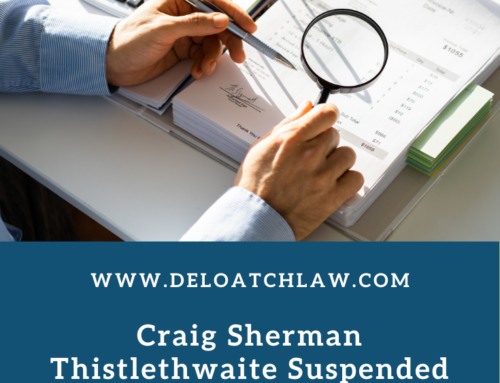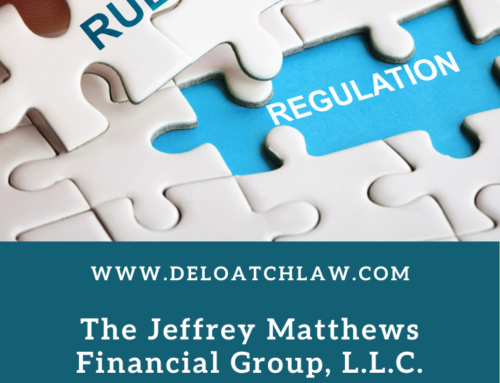 Many investors were negatively impacted by the extreme events of 2020. Death, illness and loss of employment or business are just a few of the life-altering events many people have experienced. Such extreme events more often than not have a dramatic effect on a customer’s investment objectives. What are the suitability obligation of a brokerage firm when customer investment objectives have changed?
Many investors were negatively impacted by the extreme events of 2020. Death, illness and loss of employment or business are just a few of the life-altering events many people have experienced. Such extreme events more often than not have a dramatic effect on a customer’s investment objectives. What are the suitability obligation of a brokerage firm when customer investment objectives have changed?
Brokerage firms have a duty of suitability – ensuring a securities recommendation is consistent with a customer’s investment objectives.
Suitability Obligation of Broker-Dealers Under FINRA and the SEC
The Financial Industry Regulatory Authority (“FINRA”) – the self-regulatory agency that governs all brokerage firms/broker-dealers (“BD”) and their associated persons (i.e. stockbrokers) – requires them to make good-faith reasonable efforts to obtain specific information about their clients before they can make securities related recommendations. For example, FINRA Rule 2111(a) states, in relevant part:
A member or an associated person must have a reasonable basis to believe that a recommended transaction or investment strategy involving a security or securities is suitable for the customer, based on the information obtained through the reasonable diligence of the member or associated person to ascertain the customer’s investment profile.
It’s important to note the rule distinguishes between an investment (i.e. stocks, bonds and options) and an investment strategy (i.e. the use of margin, short selling or option strategies). Thus, before either an investment or an investment strategy can be recommended, the BD has an obligation to obtain specific information from the customer to form a customer profile. Such information includes, but is not limited to:
- investment experience;
- other investments;
- financial situation and needs;
- investment objectives;
- risk tolerance;
- investment time horizon;
- liquidity needs; and
- any other information the customer may disclose.
 Similarly, the Securities and Exchange Commission (“SEC”) has established Regulation Best Interest (Reg BI) under the Securities Exchange Act of 1934. It establishes a “best interest” standard of conduct for broker-dealers and associated persons when they make a recommendation of any securities transaction or investment strategy involving securities, including recommendations of types of accounts to a retail customer.
Similarly, the Securities and Exchange Commission (“SEC”) has established Regulation Best Interest (Reg BI) under the Securities Exchange Act of 1934. It establishes a “best interest” standard of conduct for broker-dealers and associated persons when they make a recommendation of any securities transaction or investment strategy involving securities, including recommendations of types of accounts to a retail customer.
In short, a BD and stockbroker must act in the best interest of the customer and have a reasonable basis to believe that a recommended securities transaction or strategy is suitable based upon the retail customer’s profile.
Continued Obligation to Assess Client Suitability
Although, BD’s and stockbrokers are required to capture their clients’ profile when the account is first established, their obligations don’t end there. They have a continuing obligation to reassess their clients’ investment objectives and risk tolerance. The supplementary material to FINRA Rule 2111, entitled Supplementary Material .06: Customer’s Financial Ability, makes this makes clear that the rule:
prohibits a member or associated person from recommending a transaction or investment strategy involving a security or securities or the continuing purchase of a security or securities or use of an investment strategy involving a security or securities unless the member or associated person has a reasonable basis to believe that the customer has the financial ability to meet such a commitment.
Simply stated, a BD/adviser can only continue to recommend a specific security transaction or use of an investment strategy if they have a reasonable basis to believe the customer has the financial ability to meet such a commitment. They could only have this continued reasonable basis, if they actually reassess the customer profile.
In short, if your customer profile has changed over the last year’s dramatic events and your broker is continuing to make the same types of recommendations without reassessing your customer profile, it may have breached its duty of suitability by making unsuitable recommendations. They in turn may be responsible for your losses.
So, has your brokerage firm breached its duty of suitability by making recommendations that are longer consistent with your investment objectives?
What Should You Do?
If you believe that you have sustained losses due to unsuitable recommendations by your broker, you should speak with a legal professional experienced in the securities industry. The existence of a cause of action are depend on the facts and circumstances of each case. The Law Office of Kevin J. Deloatch, Esq. has an extensive securities law practice and over 30 years of experience on Wall Street. If there is a basis for filing a claim your time may be limited. Call today for a free consultation at (646) 792-2156.








